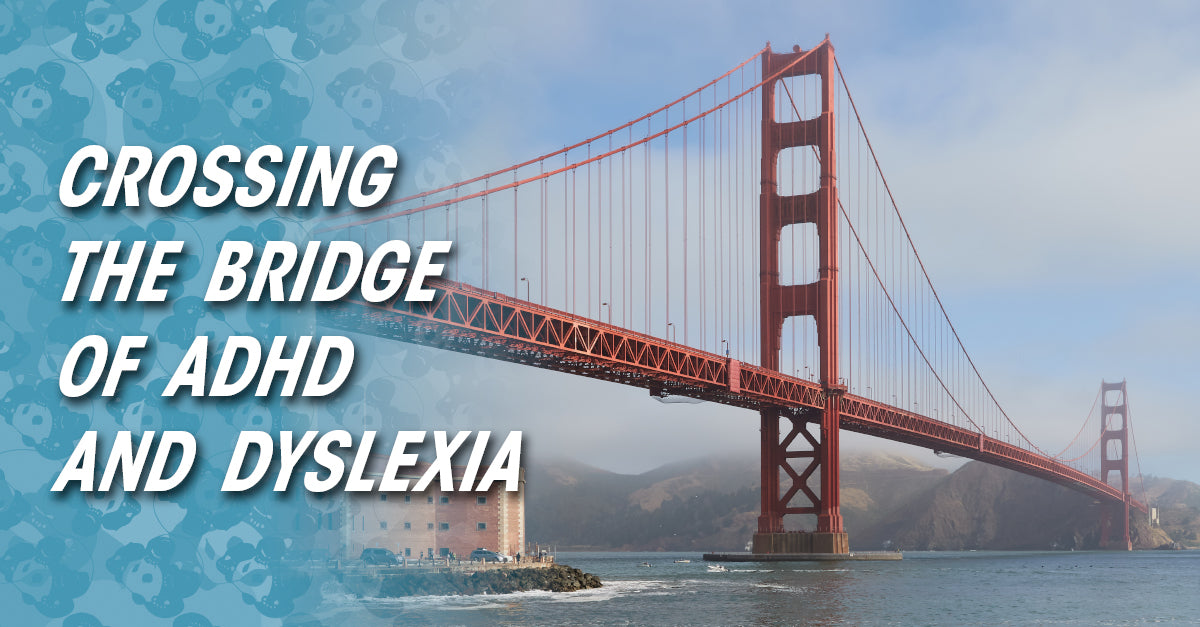Crossing the Bridge of ADHD and Dyslexia

When I was young, my family—my father, mother, sister, and me—immigrated from Chile to the United States. My family wanted better education opportunities for my sister and I, and they felt that moving to the U.S. would give us access to things we might not find in Chile.
We landed at the JFK airport, and I asked my dad if we could take the Golden Gate Bridge on our way to our aunt’s house in New Jersey. For some reason, I had myself convinced that the Golden Gate Bridge was in New York—who knows how kids get ideas into their brains—and I kept asking.
My dad, in Spanish, said, “No, this is New York. Saturday Night Fever. John Travolta. We’ll cross the Verrazano Narrows Bridge.”
My American education had already begun.
I’m not sure whether my dad’s love for Saturday Night Fever shows it or not, but my parents were incredibly progressive for the time. The schools in Chile had a standard curriculum. Everyone took the same classes regardless of performance or interests, which meant I was bored most of the time and started to struggle, even early on. In first grade, I was diagnosed with ADHD and dyslexia.
I remember sitting at the doctor's office and ADHD being explained to my parents. On top of my hyperactivity, I had trouble focusing. The doctor put a new lens to it, saying that it wasn't that I didn't pay attention, but that I paid attention to everything. Suddenly I felt understood. It took years for me to understand what was going on in my head. It’s like a constant deluge of noise. If I’m in a crowded room and people two tables away are speaking in Spanish about what they ate last week, my brain wants to track every word—as well as every other word bouncing around the room.
Dyslexia is a bit stranger because you don’t notice it until you go back and see you made a mistake. I can look at numbers on paper, like 7198, and fully understand what they mean. When I go to write them down, it becomes 1891 for no apparent reason. Even when you’re a kid, you know it’s a simple task, so you wonder, “Why can’t I do this?” Everyone else just writes it down, but here you are agonizing over something that should be so easy.
The school recommended I start a heavy course of medication to calm me down.
My mom refused. And that was controversial, even within our family, partially because Nelson’s energy levels didn’t make life easy on authority figures and partially because the understanding of things like ADHD and dyslexia were incredibly limited at the time. I’m not sure how, but my mom knew that there was a better path for me and stood her ground.
My dad stood his ground for me too, but that was usually in the principal’s office after I pressed my luck with a teacher. One time, I had told a teacher not to hit me again because my dad would beat him up. There, in the principal’s office, was the first time my dad was hearing about the incident.
Without hesitation, he said, “Yeah, don’t touch my kid.”
In the United States, the schools seemed to have more resources to handle kids like me, and when I could start making my own choices about classes I took or what extracurriculars I could participate in—track, football, wrestling—managing my ADHD and dyslexia got a bit easier. For my sister (she is the smart one in the family), moving to the U.S. meant more challenging classes and access to great colleges in the future. Even with the additional resources in our new home, my parent’s support was still important.
My mom would go through my school notebooks with me. You could see where I was focused and taking notes and following along with the teacher, and then you hit a gap. That blank spot, that’s where I got distracted. Then the notes would start back up again. My mom would push me to remember what happened in the gap so that we could fill at least some of it back in.
Support from people like my parents, a few understanding teachers, and later the mentors I had in business and in jiu-jitsu, helped me to find my way despite the wiring in my brain. In many ways, I think they helped me to eventually find a path that fit my high-energy levels and my overactive mind.
ADHD and dyslexia are still challenges for me today, and I’m incredibly grateful for the people in my life who didn’t write me off because I had diagnoses and acronyms in my file. If you’re like me and have ADHD or dyslexia, don’t let it discourage you. Let it give you strength. Or, if you know someone in your life who faces these challenges, give them your encouragement and support.
You could be the bridge that takes them into a better life. Verrazano Narrows, not Golden Gate.
Other articles:
Quick links
Contact us
About us
Quality BJJ gear at fair prices, available all year. Founded in 2012 to provide an alternative to high-cost, limited edition gis. Dive into the BJJ lifestyle with us—join the Panda Nation!"
